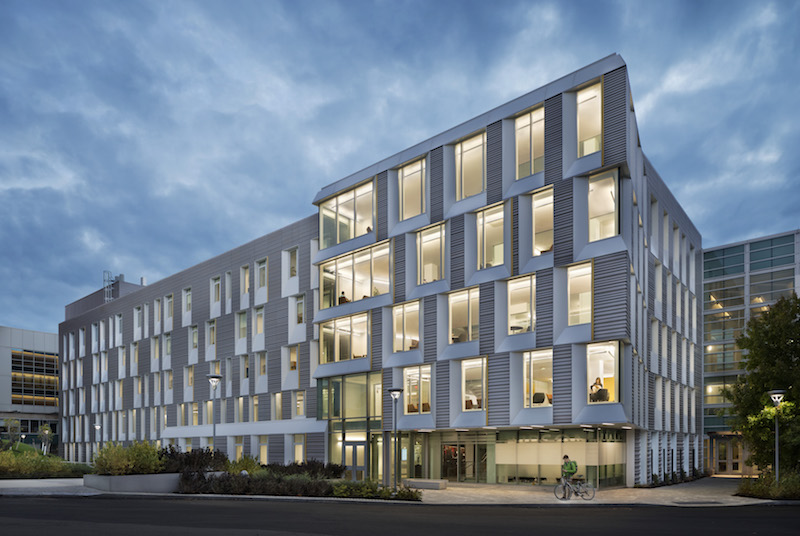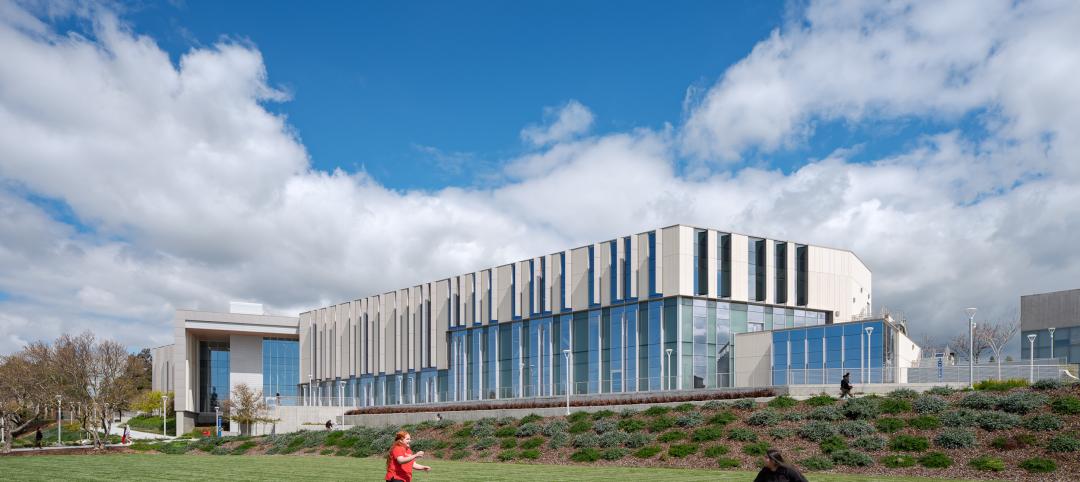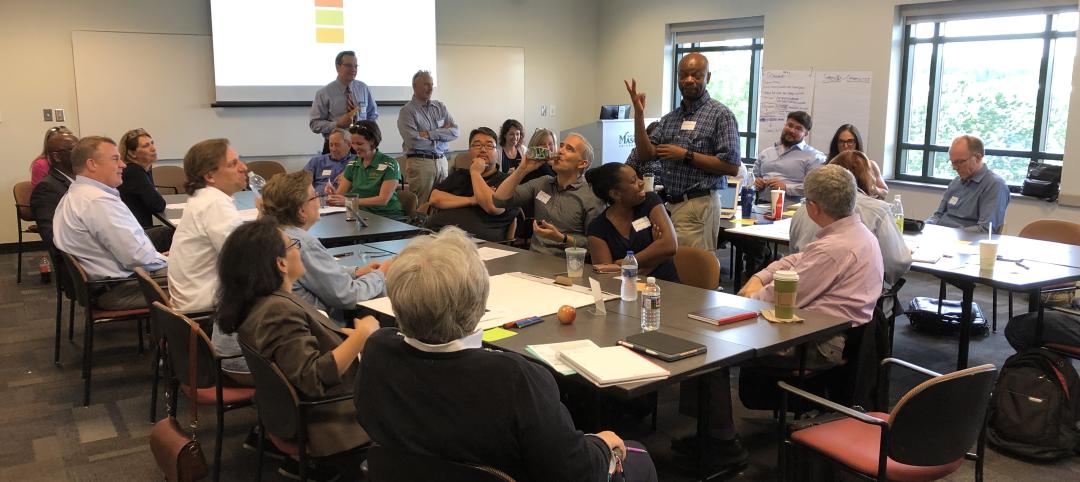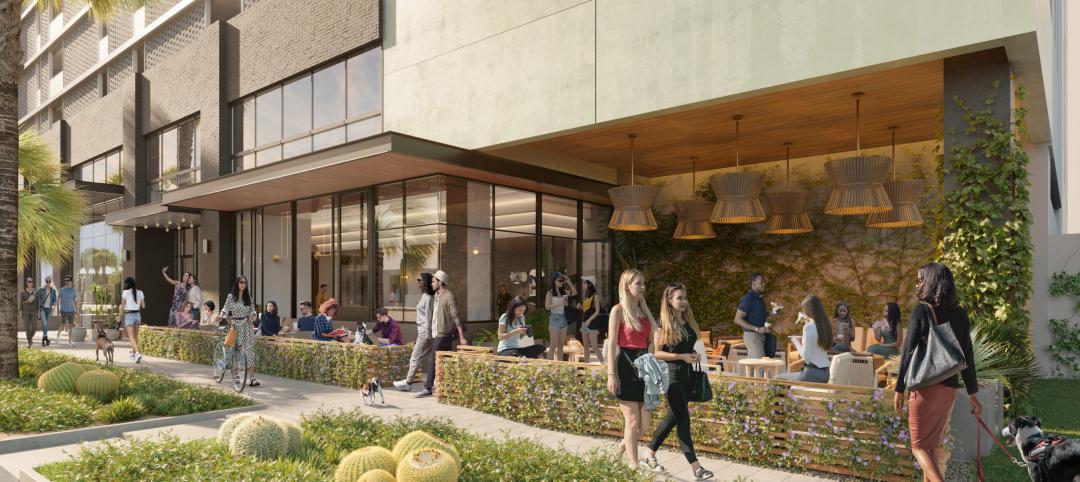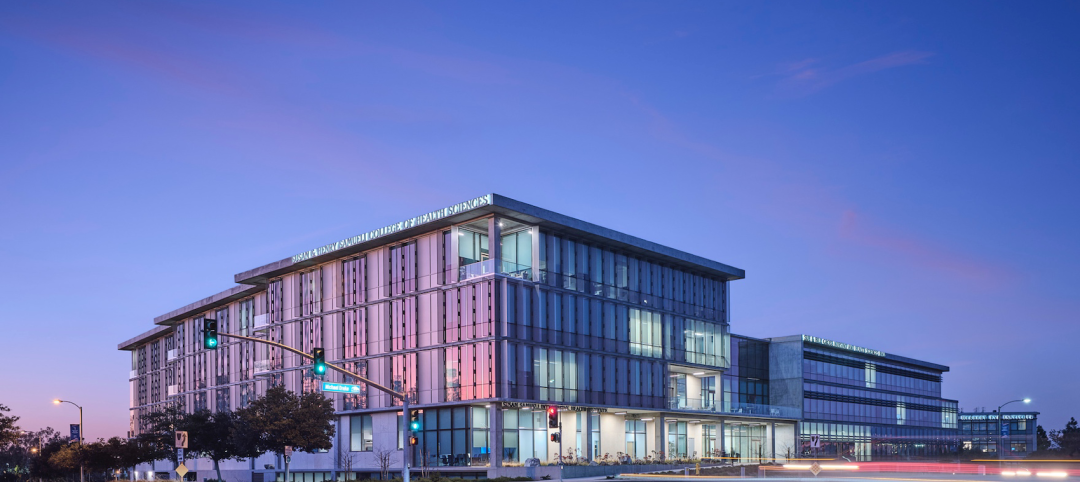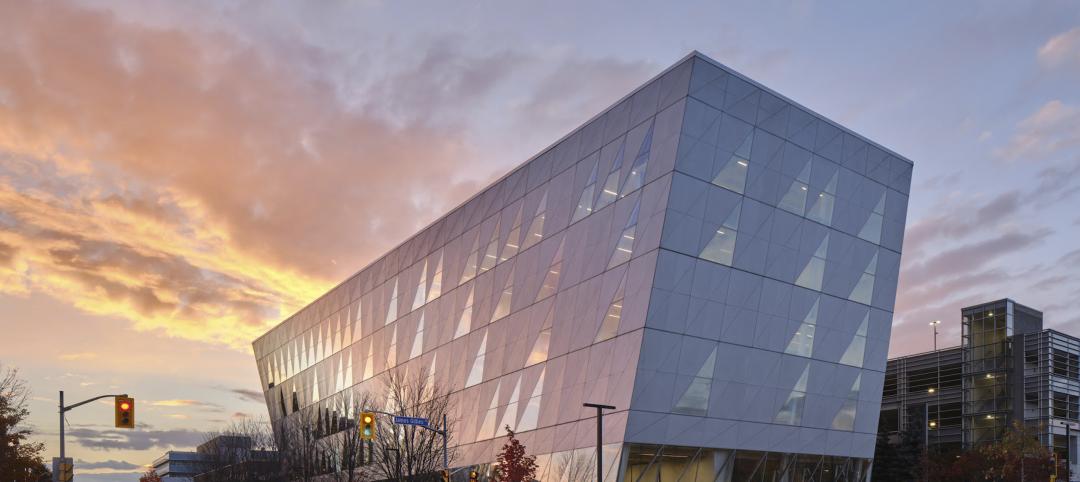The recent transformation of Cornell University’s 160,000-sf Upson Hall could become a blueprint for how this Ivy League college updates other buildings within the engineering quad of its Ithaca, N.Y., campus.
The $74 million project maximized Upson Hall’s interior space featuring four new conference rooms, three social lounges, and public corridors for collaborative learning and research. Advanced envelope, HVAC, and lighting systems were installed to boost the building’s energy performance. And a variegated façade design, composed of terracotta and vertical windows, brings more natural light into the building.
A key factor in this project was the early and ongoing collaboration between the Building Team’s architects Perkins + Will (the original designer of Upson Hall in the 1950s) and Lewis.Tsurumaki.Lewis; with the engineers Thornton Tomasetti and ME Engineers; and Cornell University Sustainable Design.
P+W and LTL went so far as to embed staff members in each other’s offices during the project. And the collaboration with the engineers was critical because some of the client’s ideas for this building were at cross-purposes. “How do we design a façade that would maximize daylight and thermal capacity at the same time?” said David J. Lewis, a Principal with LTL Architects. The Building Team needed to reconcile aesthetic, energy, and daylight objectives, which included balancing the building’s wall-to-window ratio.
The collaboration “started with everyone being at the table, and with each team member’s commitment” to the process, says Robert Goodwin, architectural design director at P+W’s New York office.
Goodwin and Lewis are Cornell grads.
There was some consideration given to tearing down the building and constructing new. But that was quickly scotched, says Goodwin, because Upson Hall is located between three other buildings on the quad, and is attached to an atrium. The client and Building Team decided, instead, to completely gut the existing building and replace the façade strategically.
The new façade is cantilevered in a way that creates space for social interaction at the corner of the building, says Lewis.
Goodwin says Cornell was a collaborative partner on this project, and its aspirations for sustainability “were very high.” (At one point there was some discussion about reconstructing Upson Hall to Passive House standards.)
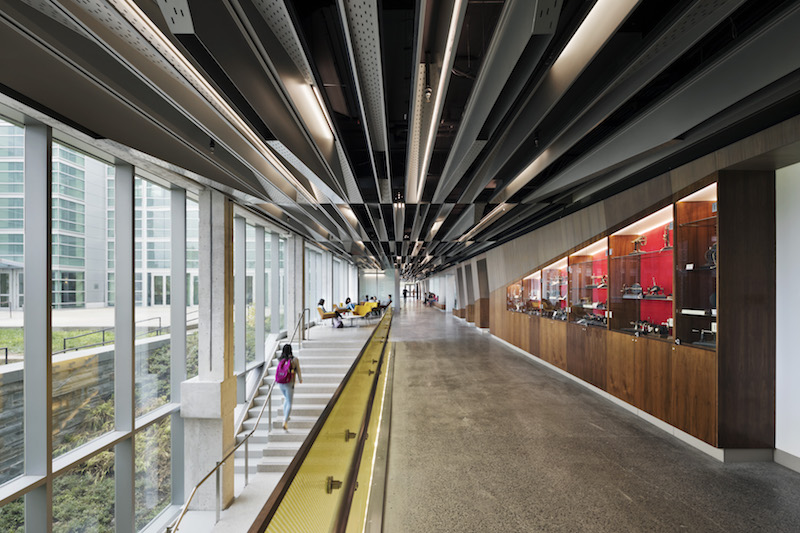
The building was designed with four new conference rooms, three social lounges, and public corridors for collaborative learning and research. Image: Michael Moran Photography
The building, which is currently LEED Gold-certified, pending Platinum certification, serves as a “living sustainability lab,” enabling mechanical and aerospace engineering students to work, learn and study in a high-performance, technologically advanced facility.
Upson Hall’s new design specifications will be applied to the other six Cornell buildings located within the engineering Quadrangle over the coming years.
LTL and P+W were so pleased with the interdisciplinary approach the Building Team took that the firms have talked about working together on future products. The revelation for Goodwin was that it’s possible to collaborate of projects in a different way that integrates practices. “This was my first time as a design director that I didn’t wear a design hat. It was very efficient.”
Related Stories
University Buildings | Jun 14, 2023
Calif. State University’s new ‘library-plus’ building bridges upper and lower campuses
A three-story “library-plus” building at California State University, East Bay (CSUEB) that ties together the upper and lower campuses was recently completed. The 100,977-sf facility, known as the Collaborative Opportunities for Research & Engagement (“CORE”) Building, is one of the busiest libraries in the CSU system. The previous library served 1.2 million visitors annually.
Higher Education | Jun 14, 2023
Designing higher education facilities without knowing the end users
A team of architects with Page offers five important factors to consider when designing spaces for multiple—and potentially changing—stakeholders.
University Buildings | Jun 9, 2023
Cornell’s new information science building will foster dynamic exchange of ideas and quiet, focused research
Construction recently began on Cornell University’s new 135,000-sf building for the Cornell Ann S. Bowers College of Computing and Information Science (Cornell Bowers CIS). The structure will bring together the departments of Computer Science, Information Science, and Statistics and Data Science for the first time in one complex.
Student Housing | Jun 5, 2023
The power of student engagement: How on-campus student housing can increase enrollment
Studies have confirmed that students are more likely to graduate when they live on campus, particularly when the on-campus experience encourages student learning and engagement, writes Design Collaborative's Nathan Woods, AIA.
Urban Planning | Jun 2, 2023
Designing a pedestrian-focused city in downtown Phoenix
What makes a city walkable? Shepley Bulfinch's Omar Bailey, AIA, LEED AP, NOMA, believes pedestrian focused cities benefit most when they're not only easy to navigate, but also create spaces where people can live, work, and play.
Higher Education | May 24, 2023
Designing spaces that promote enrollment
Alyson Mandeville, Higher Education Practice Leader, argues that colleges and universities need to shift their business model—with the help of designers.
University Buildings | May 17, 2023
New UC Irvine health sciences building supports aim to become national model for integrative health
The new College of Health Sciences Building and Nursing & Health Sciences Hall at the University of California Irvine supports the institution’s goal of becoming a national model for integrative health. The new 211,660-sf facility houses nursing, medical doctorate, pharmacy, philosophy, and public health programs in a single building.
University Buildings | May 11, 2023
New ‘bold and twisting’ building consolidates School of Continuing Studies at York University
The design of a new building that consolidates York University’s School of Continuing Studies into one location is a new architectural landmark at the Toronto school’s Keele Campus. “The design is emblematic of the school’s identity and culture, which is centered around accelerated professional growth in the face of a continuously evolving labor market,” according to a news release from Perkins&Will.
Sustainability | May 11, 2023
Let's build toward a circular economy
Eric Corey Freed, Director of Sustainability, CannonDesign, discusses the values of well-designed, regenerative buildings.
Digital Twin | May 8, 2023
What AEC professionals should know about digital twins
A growing number of AEC firms and building owners are finding value in implementing digital twins to unify design, construction, and operational data.


